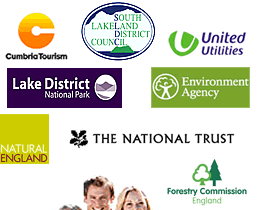Lakes in Peril: Reducing Human Pressure on Environments
Introduction
Lakes are vital ecosystems that play a crucial role in maintaining the health and balance of our natural environments. However, these precious bodies of water face numerous threats and pressures due to human activities. In this article, we will explore the challenges faced by lakes, the interconnectedness of human actions and their impact on lake ecosystems, and the importance of reducing human pressure. Writers from the essay outline writing service checked for grammatical errors, the accuracy of information in the article, and editing. Environmentalists, conservationists, researchers, policymakers, educators, and concerned individuals can all contribute to the preservation and restoration of our lakes.
The State of Lakes and Environmental Challenges
Lakes are currently under siege from various human activities. Pollution, habitat destruction, overfishing, and climate change are among the primary threats they face. These pressures have severe ecological consequences, leading to the degradation of water quality, loss of biodiversity, and disruption of delicate ecosystems. The urgency to address human impact on lakes has never been more critical.
Understanding the Human Pressure on Lakes
To comprehend the gravity of the situation, we must delve into the different human activities that contribute to the deterioration of lake environments. Pollution from industrial and domestic sources, deforestation, unsustainable fishing practices, and the exacerbation of climate change all have cumulative effects on lake ecosystems. Socioeconomic factors such as population growth and unsustainable development further drive these activities, necessitating a comprehensive approach to conservation.
The Importance of Reducing Human Pressure on Lakes
Lakes are not just bodies of water; they are essential ecosystems that provide freshwater, support diverse species, and offer numerous benefits to human societies. Preserving and restoring lake environments have far-reaching advantages, including improved water quality, enhanced biodiversity, and sustainable resource provision. Failing to address the human pressure on lakes will result in irreversible consequences for both the environment and human well-being.
Strategies for Reducing Human Pressure on Lakes
To mitigate the threats facing lakes, a multi-faceted approach is required. Policy and governance measures play a crucial role in establishing regulations and enforcement mechanisms for lake conservation. Successful examples of policies that have reduced human pressure on lakes can provide valuable insights and inspiration. Sustainable resource management, including responsible fishing practices and the adoption of sustainable land and water resource practices, is essential for long-term lake preservation. Pollution control and remediation, including wastewater treatment and community involvement, are pivotal in reducing the adverse impacts of pollution on lake ecosystems. Additionally, climate change adaptation and mitigation measures, such as reducing greenhouse gas emissions and promoting renewable energy sources, are vital to protect lakes from the effects of a changing climate.
Case Studies and Success Stories
Examining successful initiatives and collaborative efforts to reduce human pressure on lakes provides inspiration and practical insights. Highlighting these case studies demonstrates the potential for positive change and the replicability of successful strategies. By learning from past successes, we can foster innovation and encourage further action.
Educating and Engaging Stakeholders
Raising awareness and educating the public about lake conservation is essential for fostering engagement and action. Environmentalists, conservationists, researchers, policymakers, and educators all have a vital role to play in advocating for lake preservation. Providing practical tips and resources empowers individuals to contribute to lake conservation efforts and become environmental stewards in their own communities.
Conclusion
The well-being of our lakes is intrinsically linked to the health of our natural environments. By reducing human pressure on lakes through sustainable practices, effective policies, and active engagement, we can safeguard these critical ecosystems for future generations. It is a collective responsibility to take immediate action, preserve our lakes, and ensure the long-term sustainability of our natural environments.
|

